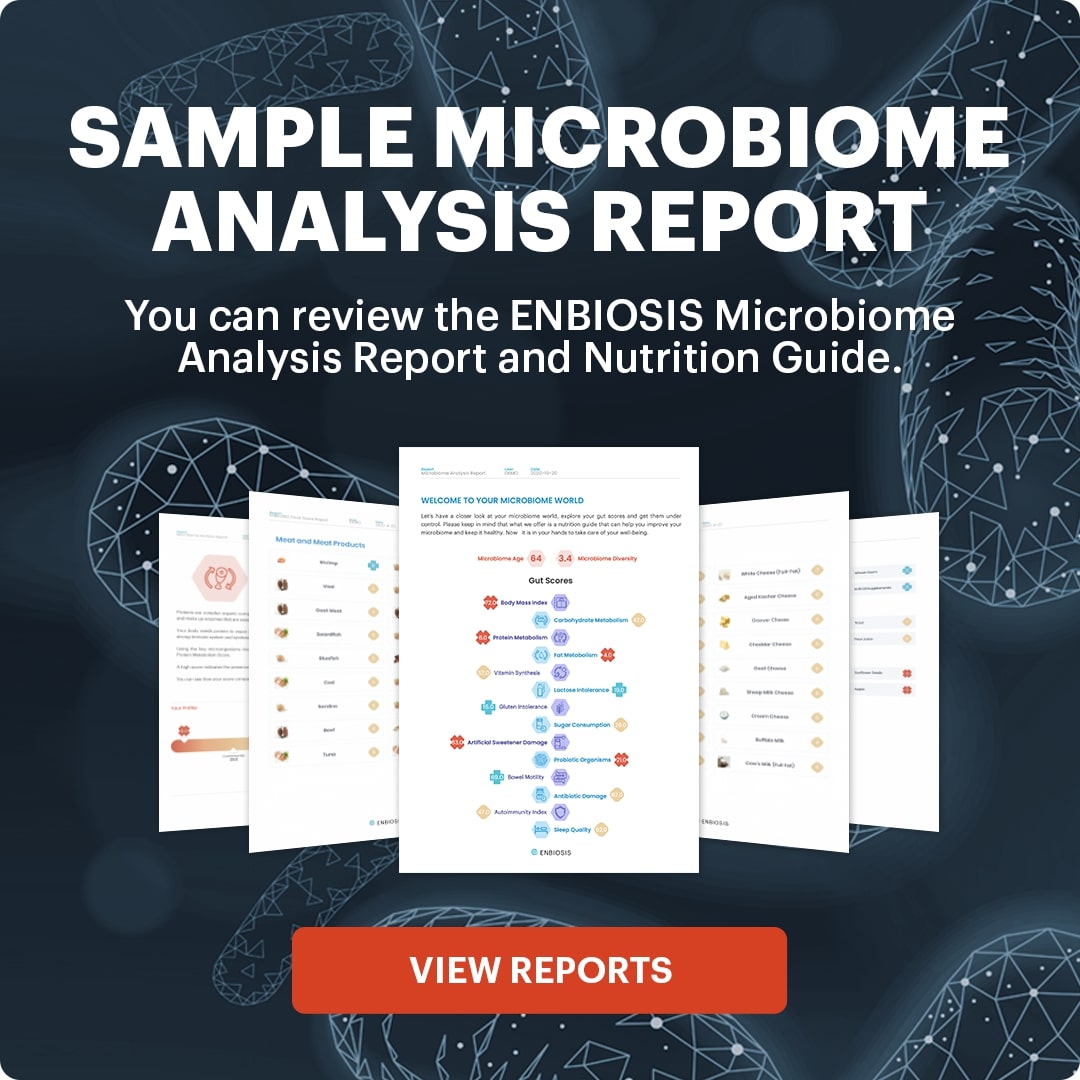Microbiome testing offers a unique insight into the current health and balance of our gut. As a healthcare provider, you will understand just how important the makeup of our gut microbiome is to our overall health. The microbes within our body influence everything from our digestion and immunity to our mental well-being and chronic disease risk. But are you harnessing the full potential of microbiome analysis in your practice? Join us in this blog post as we explore how different practitioners can integrate microbiome testing into their practice, highlighting the benefits and practical applications.
Table of Contents
Why Should Practitioners Consider Microbiome Testing?
You may be wondering, “why should I integrate microbiome testing into my practice?” It’s a valid question! As healthcare practitioners, we’re constantly evaluating new tools and technologies to enhance care and improve outcomes for our patients. But, if we don’t have an accurate idea of what is happening within our patient’s bodies, how can we help them?
This is where microbiome testing comes in! Traditional clinical tests tend to focus on identifying common symptoms and key disease markers, but they don’t really allow us to properly understand what is happening within the gut. And, as we know, the gut is a complex and dynamic ecosystem that plays a crucial role in our overall health.
Gut microbiome testing provides us with a functional assessment of our gut health, giving us lots of information about a patient’s current nutrition and microbiome profile. It can reveal imbalances and dysfunctions that may contribute to a wide range of health conditions throughout the body. By understanding the unique composition and function of your patient’s gut microbiome, you can gain valuable insights into their health and develop more targeted and effective treatment strategies.
Researchers have recently uncovered fascinating findings about our microbiomes, revealing that they are as unique to us as our fingerprints! According to a study led by Stanford Medicine, the microbial communities residing in our gut, mouth, nose, and skin are uniquely tailored to each individual. Interestingly, the microbiomes throughout our body are so intricately connected that changes to one, such as the gut microbiome, can influence microbial compositions in other parts of the body, like the skin. This groundbreaking discovery emphasizes the need for personalized approaches to healthcare and shows how we can influence our whole body by making changes to our gut health.

Is Microbiome Testing Right for Your Practice?
Incorporating microbiome testing into your practice can significantly enhance the services that you provide, regardless of your specialty. As an example, here are some key clinical specialties where gut microbiome testing is already starting to make a real difference:
Microbiome Analysis for Dietitians and Nutritionists
If you are a dietician or a nutritionist, gut microbiome testing can prove very valuable to your practice. By analyzing the gut microbiome of your patients, you can gain an insight into their unique nutritional needs. You can find out more about potential food sensitivities and identify the types of foods that have a positive and healthy impact on the gut microbiome. This information can be used to optimize your patient’s nutrition in a very precise way.

Gut Microbiome Testing in Functional Medicine
For functional medicine practitioners, microbiome testing can provide insights into the balance of microorganisms within the gut and how this influences our overall health and well-being. These valuable insights can help to develop an early understanding of potential health problems that may develop in the future. Identifying underlying microbiome dysbiosis early on allows you to address the root cause of chronic health conditions, rather than just treating visible symptoms.
Microbiome Testing for Gastroenterologists
Of course, gastroenterology is an area where gut microbiome testing can have a big impact. The interplay between the gut microbiome and various gastrointestinal conditions is becoming increasingly clear. Conditions such as irritable bowel syndrome (IBS), inflammatory bowel disease (IBD), and small intestinal bacterial overgrowth (SIBO) often present with complex symptoms, and traditional clinical tests may not provide us with enough information about the underlying issues.
This is where microbiome testing can be a valuable tool, providing practitioners with easy-to-understand gut health information that can be shared with patients. The data provided through gut microbiome analysis allows you to work with your patients to make informed lifestyle changes that can improve the diversity and health of their gut microbiome.
Microbiome Analysis for Integrative Health
Integrative health practitioners can incorporate microbiome testing as part of their holistic approach to health and wellness. By understanding the gut’s role in overall health, they can provide more comprehensive care that includes dietary, lifestyle, and supplemental interventions to support optimal gut function.
Using Microbiome Testing in Primary Care
Gut microbiome testing is not only useful within specialized healthcare fields. Primary care physicians can also analyze the gut microbiome to uncover hidden health issues that may not be apparent through standard testing. This can pave the way for more personalized treatment plans, improving patient outcomes.
Gut Microbiome Testing and Mental Health
The use of microbiome testing in mental health care is still relatively new and not yet widely adopted. Research has been steadily growing, showing promising connections between gut health and mental well-being. We now know that certain gut bacteria, particularly prevalent ones like Firmicutes and Bacteroidetes, can influence our mental health via the microbiota-gut-brain axis.
While gut microbiome testing hasn’t yet become standard practice in most mental health care settings, it holds the potential for more personalized and effective mental health treatments.
Testing the Gut Microbiome in Oncology
In oncology, the gut microbiome is rapidly emerging as a critical factor influencing cancer development, progression, and treatment response. Selecting the right foods to nourish the gut microbiome can enhance a patient’s response to their cancer treatments and support their recovery. Gut microbiome testing can inform these dietary choices, allowing for a more personalized and effective nutritional plan.
How to Integrate Gut Microbiome Testing into Your Practice
Implementing gut microbiome testing into your clinic can transform how you approach patient care. Here are some tips for seamlessly introducing gut microbiome analysis into your daily practice:
1. Choose a Suitable Gut Microbiome Testing Provider
Firstly, you will want to partner with a gut microbiome testing provider that offers access to the latest sequencing technology. This is where ENBIOSIS can help. We offer next-generation sequencing analysis, combined with cutting-edge AI technology, to deliver a detailed microbiome report. This report contains data-driven nutrient and probiotic & prebiotic recommendations and identifies disease risk.
2. Clinical Training
Next, you will need to provide in-depth training for your healthcare professionals on how to collect samples, process them, and integrate microbiome analysis findings into their patient treatment plans. Consider participating in informative webinars, accessing continuous educational material, and utilizing supportive materials to educate your patients. This can equip you with the knowledge and skills needed to confidently interpret and utilize microbiome data in your clinic.
3. Integrate Microbiome Testing into Daily Patient Care
Offer microbiome testing to your patients during their routine check-ups and make it a standard part of your consultation for relevant cases.
4. Communicate With Your Patients
Clearly explain to your patients why you recommend gut microbiome testing, how it works, and how it can benefit their health. Use simple, relatable terms to avoid overwhelming them with technical jargon.

5. Practical Application
Use insights from the microbiome analysis to create personalized diet, lifestyle, and treatment plans. This could include specific dietary recommendations, probiotics, or lifestyle changes to improve gut health.
6. Monitoring and Follow-up
Schedule regular follow-ups to monitor changes in the gut microbiome and adjust treatment plans as necessary. This ongoing care ensures that adjustments can be made based on your patient’s progress.
Contact ENBIOSIS to Find Out More
By implementing gut microbiome testing into your practice, you can gain a deeper understanding of your patient’s unique needs, optimize treatment strategies, and empower them to take control of their health.
To learn more about how ENBIOSIS can help you to integrate gut microbiome testing into your practice, contact us today.


